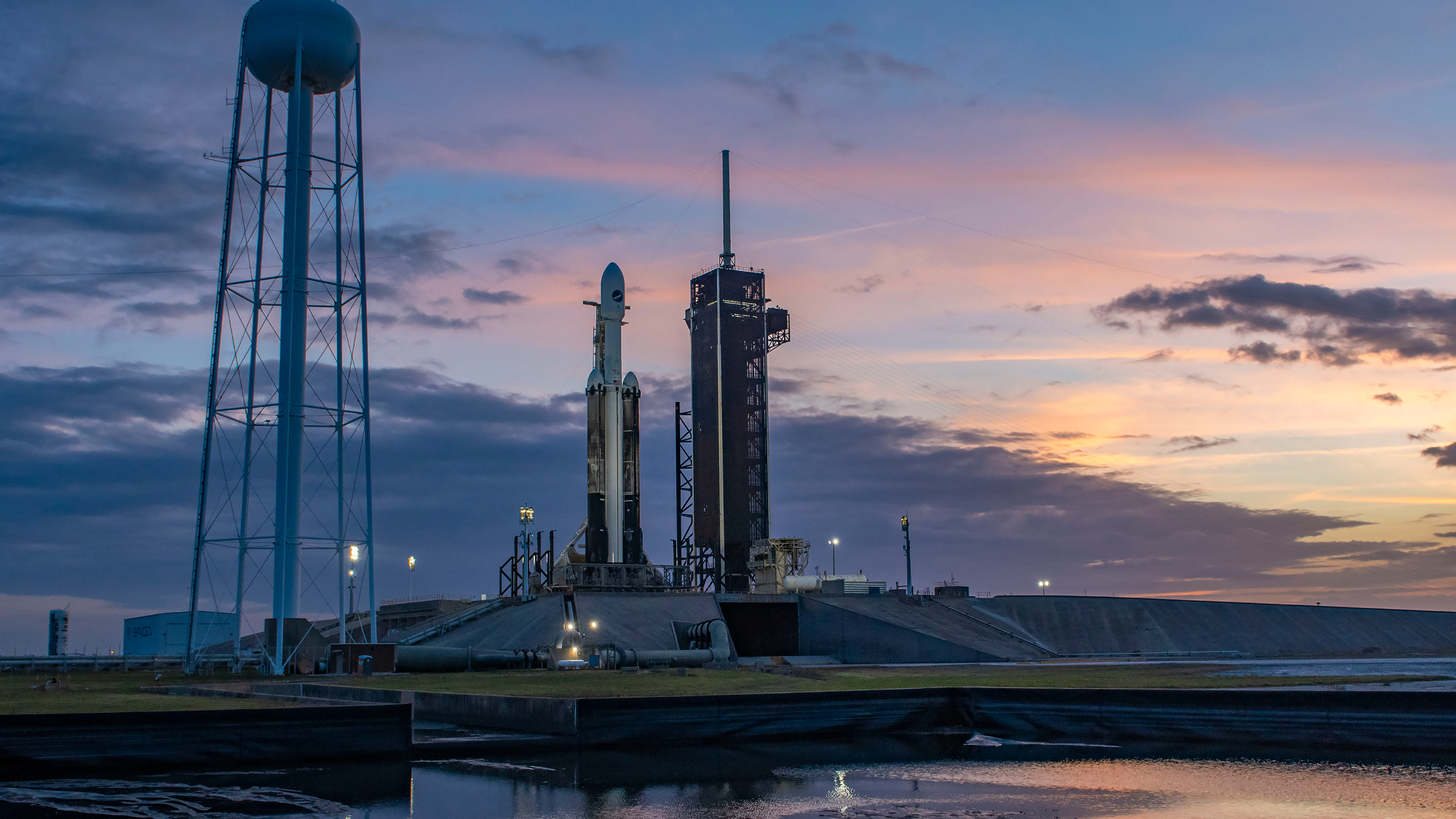SpaceX scrubs Falcon Heavy's X-37B space plane launch due to ground issue

Update for Dec. 13: SpaceX will delay the launch until an undisclosed date "to perform additional system checkouts," the company posted on X (formerly Twitter). Keep watching Space.com for updates.
We'll have to wait until Wednesday (Dec. 13) to see SpaceX's powerful Falcon Heavy rocket take to the skies again.
The brawny Falcon Heavy had been scheduled to launch the U.S. Space Force's robotic X-37B space plane from Florida on Monday night (Dec. 11), a liftoff known as USSF-52. But about 30 minutes before the planned 8:24 p.m. EST (0124 GMT) liftoff time, SpaceX announced a scrub.
"Standing down from tonight's Falcon Heavy launch due to a ground side issue; vehicle and payload remain healthy. Team is resetting for the next launch opportunity of the USSF-52 mission, which is no earlier than tomorrow night," SpaceX wrote via X (formerly known as Twitter).
When USSF-52 lifts off, you can watch it here at Space.com, courtesy of SpaceX. The new launch target is 8:13 p.m. EST on Wednesday, Dec. 13 (0113 GMT Thursday, Dec. 14).
Related: The Space Force's secretive X-37B space plane: 10 surprising facts
USSF-52 will be the seventh launch for the reusable, 29-foot-long (8.8 meters) X-37B, which military officials say is primarily a testbed for new instruments and other technologies. Most payloads and other details about X-37B missions are classified.
Breaking space news, the latest updates on rocket launches, skywatching events and more!
The first five X-37B missions launched atop United Launch Alliance Atlas V rockets. The most recent one, which landed in November 2022 after 908 days in orbit, lifted off atop a SpaceX Falcon 9.
USSF-52 will be the first X-37B mission to ride atop a Falcon Heavy, which can take the space plane higher than it has ever gone before. And that may indeed happen; the goals of the coming mission "include operating in new orbital regimes, experimenting with space domain awareness technologies and investigating the radiation effects to NASA materials," Space Force officials wrote in a release last month.
That NASA radiation experiment will expose plant seeds to the harsh environment of space, the release added.
The Falcon Heavy debuted in February 2018, on a highly anticipated test flight that sent SpaceX founder and CEO Elon Musk's red Tesla Roadster into orbit around the sun.
The heavy lifter has flown eight times to date, including four times this year already. The rocket last flew in October of this year, when it launched NASA's Psyche asteroid probe.
The X-37B Falcon Heavy launch was originally supposed to happen on Sunday (Dec. 10), but SpaceX pushed the liftoff back a day due to weather concerns.
This story was updated at 12:15 p.m. EDT Dec. 12 with the new launch window.

Michael Wall is a Senior Space Writer with Space.com and joined the team in 2010. He primarily covers exoplanets, spaceflight and military space, but has been known to dabble in the space art beat. His book about the search for alien life, "Out There," was published on Nov. 13, 2018. Before becoming a science writer, Michael worked as a herpetologist and wildlife biologist. He has a Ph.D. in evolutionary biology from the University of Sydney, Australia, a bachelor's degree from the University of Arizona, and a graduate certificate in science writing from the University of California, Santa Cruz. To find out what his latest project is, you can follow Michael on Twitter.
